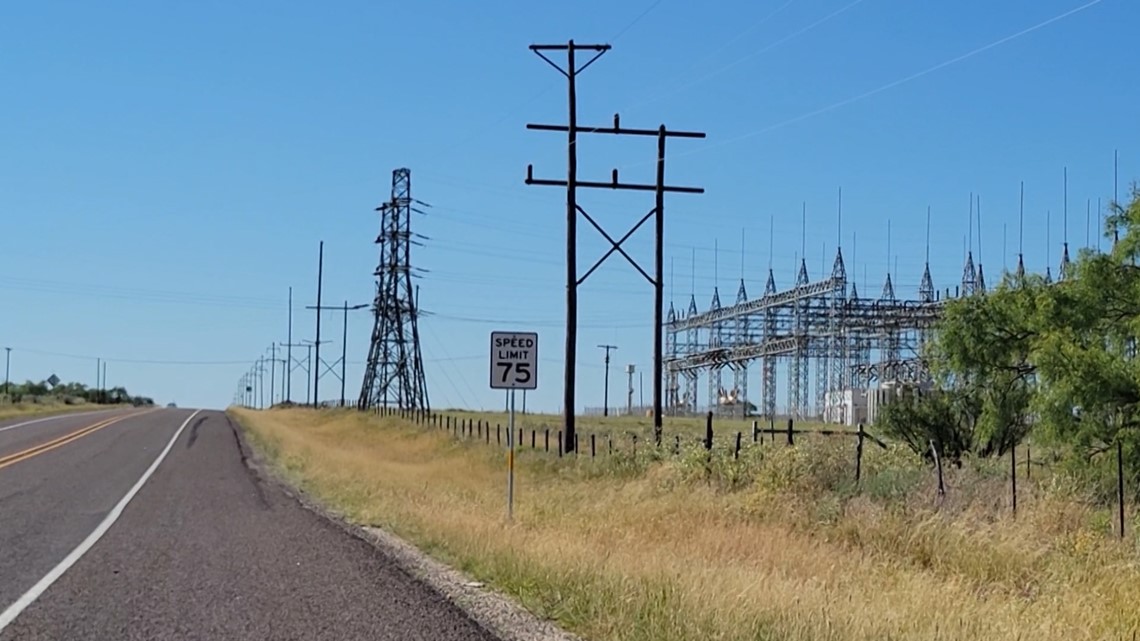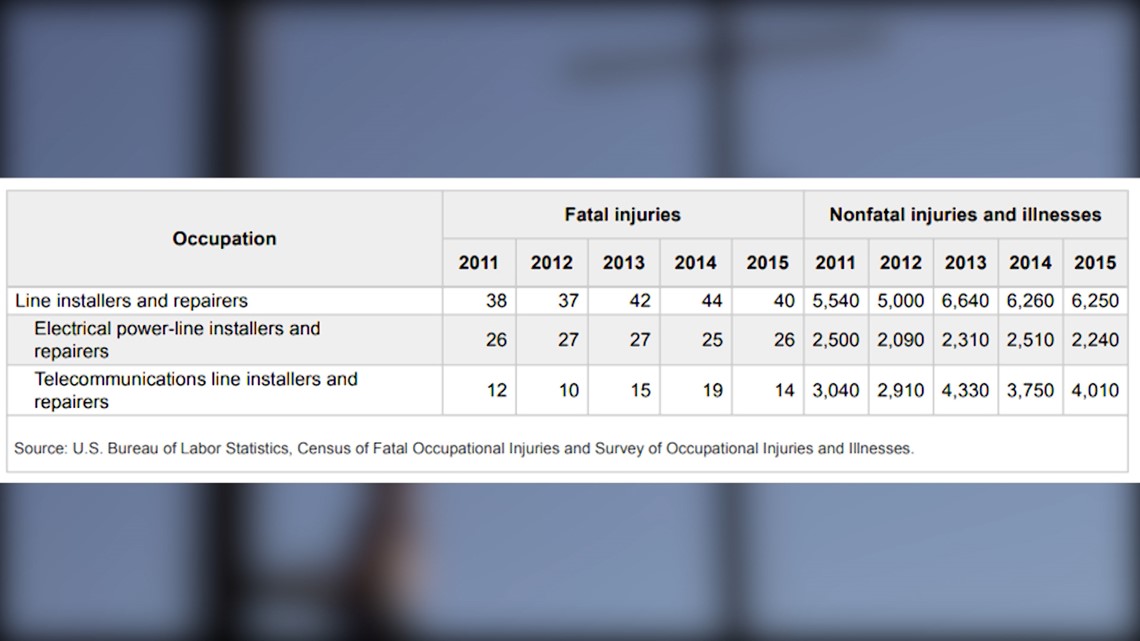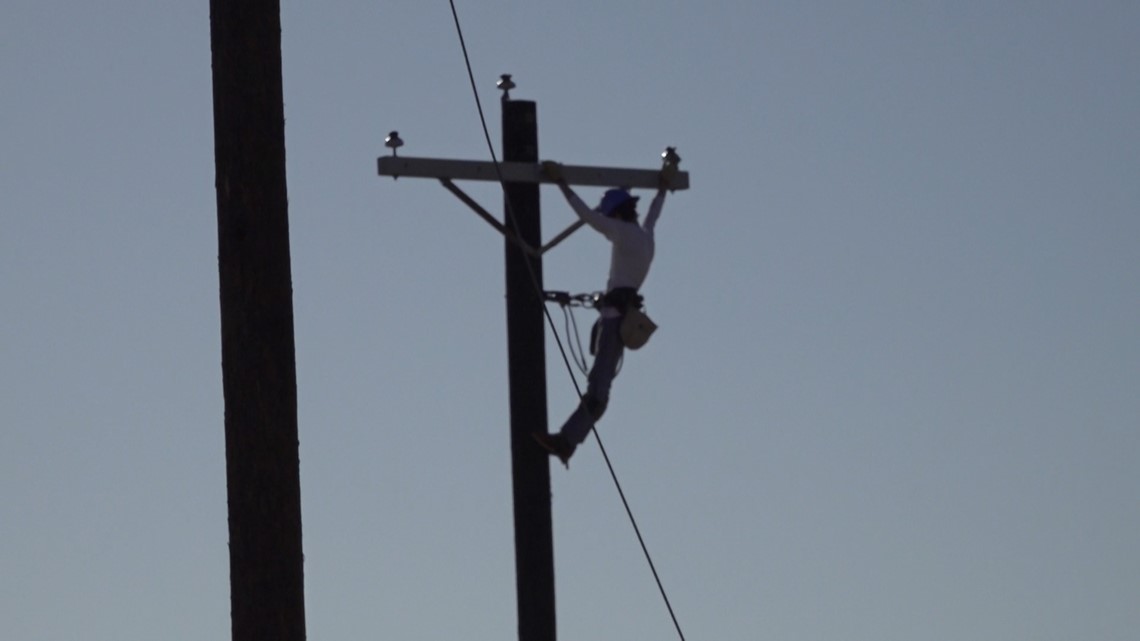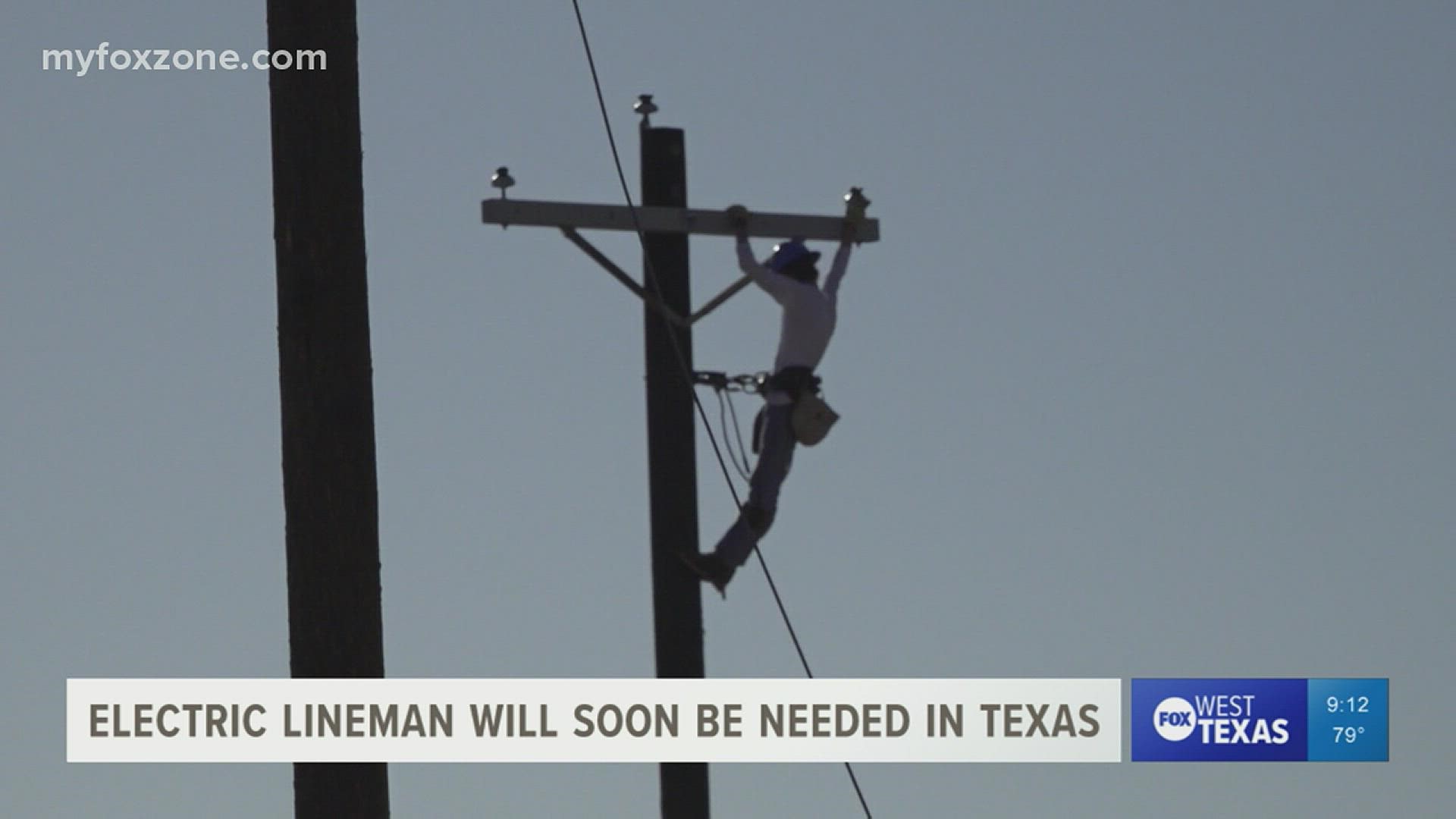SNYDER, Texas — Electrical lineman are often seen on the side of the road with their hard hats on, in the bucket of a lift, working on powerlines that stretch as far as the eye can see. Experts say those workers will be sorely needed in the next five years.
"In the next three, four or five years there's going to be a mass exodus of a lot of these tenured employees." Blake Burchard, AEP Texas external affairs manager, said.
Burchard has worked for AEP Texas, one of the largest electric suppliers in the state, for more than 30 years. He is preparing for many workers his own age to call it quits.


"It's heavy on our hearts and our minds. And we see it coming and we know it's coming and we're doing our best to get prepared for it," Burchard said.
The problem is training up new lineman is a big investment. A worker off the street needs five years of training to be a journey lineman. There aren't many qualifications needed to become an apprentice lineman, but the on-the-job training is intensive.
Western Texas College in Snyder is stepping in to fill that gap with its electric lineman program. It is a 10-month class teaching the basics of line work and prepares students to take the test for their commercial driver license.


Burchard said this type of program will really help the student coming out trying to get a job and the workforce.
"It would be nice if everybody we had went through a program. It would help them get so much down the road coming in having a bunch of that training and certifications," Burchard said.
That is why lineman program instructor Tony Strawn spent his morning having more than a dozen students going up and down 40-foot poles.
"They are learning to trust that equipment and get comfortable with it," Strawn said.
He said he works to instill the importance of safety to his students in the time he has with them. He should. Year after year, electric line work is named one of the most dangerous professions in the country.
"I mean when you're working with 7,200 volts in your hand, you have to pay attention," Burchard said.
According to a 2015 study from the U.S. Bureau of Labor Statistics done over a five-year period, approximately 40 linemen die each year and more than 6,000 are injured on the job.


Strawn said this is why it is so important to be able to trust your coworker.
"You develop a bond with the people that you work with that lasts a lifetime. And that's what these students will learn, too," Strawn said.
Burchard said safety procedures have improved over the last few years to lessen the frequency of accidents.
"Today's lineman has a lot more tools available to their access. The bucket shops are nicer and they're more fit for the job. They've got hand tools that used to it have to squeeze a tool to make the wire connections. Now you have some battery operated stuff. So, the tools that they can use today, that's available today is a lot better," Burchard said. "It helps them do their job more safely. Safety is our number one goal. We want those guys to go back home to their families in better shape than when they came to work that day."


Western Texas College's electric lineman program is an annual course. According to Texas Workforce Commission data, the average hourly wage of electric line workers is $20.21 in Texas. For more information on the program, visit wtc.edu/lineman.

